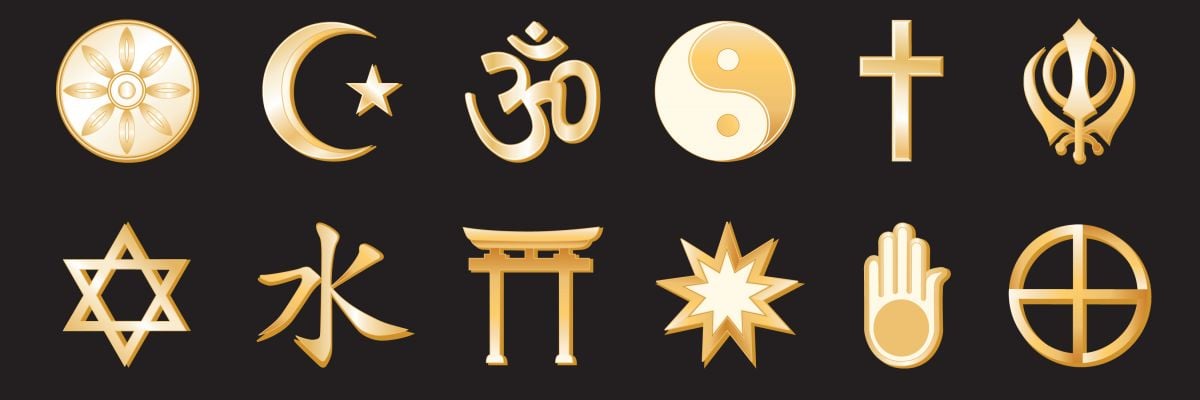
On a recent flight from Philadelphia to San Diego I had the following conversation with a woman—we’ll call her Mary—who believed that all religions were equal. I wrote down the conversation a few days later. Here it is:
All Religions Are Equal
“I suppose when it comes down to it,” Mary said, “the main thing is that people are sincere in what they believe. All religions are equal.”
“What do you mean by equal?” I asked.
“I believe all express the truth, just in different language.”
“If all religions are equally true, then does that mean you would accept everything that all religions teach?”
“Yes. I might express it differently, but I believe that deep down we are all speaking the same language.”
“So you agree with the Christian religion, which says that Christ is the only way to the Father?”
“No.” Mary was unaware of the logical contradiction she had just expressed. She looked at me as if perhaps I wasn’t paying attention. After all, she had just stated that all religions were equally true. Why would I now ask her if she believed the exact opposite?
“I’m confused,” I said, gently. “You say you believe that all religions are equally true, but you don’t believe that the Christian religion is correct in saying that Jesus Christ is the only objective means of salvation. Doesn’t that mean that you don’t believe that all religions are equally true?”
Is It Arrogant to Believe that Other Religions Are Wrong?
Mary became uncomfortable when she saw that she had contradicted herself and dismissed what I had said by saying: “I guess I just think it’s arrogant to believe that your worldview is right and that everyone else’s is wrong.”
Not wanting to press too hard, I resisted the temptation to show Mary how her religious indifferentism was itself a worldview that alone claimed to be true while condemning as wrong all opposing beliefs.
“Do you believe in the law of noncontradiction? That something cannot be both true and untrue at the same time?”
“Give me an example.”
“God cannot be the creator of the universe and at the same time not be the creator of the universe.”
“Sure, that makes sense.”
“Okay, so theism—the belief that there is a God who created the universe—and pantheism—the view that God is the universe—cannot both be true. This is one example of why you can’t rationally affirm that all religions are equally true. The law of noncontradiction forbids it. This does not mean that there cannot be elements of truth in all religions but that all are not equally true. I believe that the Catholic Church possesses the fullness of the truth and other religions are wrong inasmuch as they disagree with that fullness.”
What the Church Teaches
I then mentioned the passage in the Vatican II document Nostra Aetate:
The Catholic Church rejects nothing that is true and holy in these religions. She regards with sincere reverence those ways of conduct and of life, those precepts and teachings which, though differing in many aspects from the ones she holds and sets forth, nonetheless often reflect a ray of that Truth which enlightens all men. Indeed, she proclaims, and ever must proclaim, Christ “the way, the truth, and the life” (John 14:6) in whom men may find the fullness of religious life, in whom God has reconciled all things to himself.



